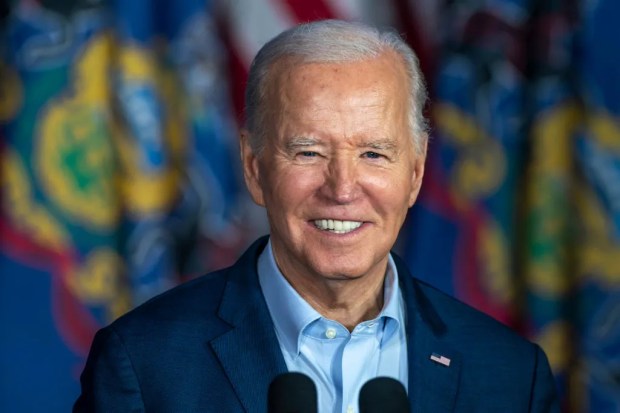Javier Milei, a messy-haired bombastic libertarian economist, won Argentina’s presidential elections against socialist minister of economics Sergio Massa this Sunday. With the backdrop of inflation that the International Monetary Fund projects will trail only that of Zimbabwe and Venezuela by the end of the year, Milei triumphed with over 55 percent of votes in the runoff with more than 94 percent of votes counted, according to data from the country’s National Electoral Chamber.
In a brief speech before the results were announced, Massa, who came first in the October 22 election that led to the run-off, said, “Milei is the president elected for the next four years,” adding that he had called Milei to personally congratulate him on his victory.
Milei ran on an anti-establishment platform that had the entirety of US media drawing comparisons between him and Donald Trump. In some ways, the comparisons made sense: Milei packed stadiums, slammed the mainstream media and made the occasional crude yet hilarious joke. And like Trump, he also earned himself some big enemies, including Pope Francis, who he labeled a “filthy leftist” and “the representative of the Devil on Earth.” Even more like Trump, he found himself a loyal following enamored in great part by his larger-than-life personality.
And as in America in 2016, unexpectedly for most, it took one unconventional man to supplant the conventional right. Back in August, Milei shocked the nation by getting 30 percent of the vote in the presidential primary, leaving behind both Massa and center-right Patricia Bullrich — the candidate originally backed by former president Mauricio Macri.
But unlike Trump, Milei’s so-called “far-right populism” is not what many Americans have in mind. While Milei did sit down with Tucker Carlson for an interview and welcomed the comparisons to Brazil’s Jair Bolsonaro and Trump, his philosophy is distinctly libertarian. He has called for an Ayn Rand-styled “Atlas rebellion” and literally destroyed a central bank piñata on national TV.
Milei’s “shock-therapy” populism, though, shouldn’t surprise. Argentina’s major ill is inflation, not a shrinking manufacturing base or tremendous levels of immigration. He emerges as an antidote to a unique illness.
The US media has fixated on his opposition to state-funded sexual education and his pro-life position, but in reality, Milei’s election cannot be wholly understood through the lens of cultural preservation. He rose to prominence lambasting subsidies, taxes and tariffs. While a growing faction of the European and US right distances itself from the small-government-rocks consensus, Milei embraced it. He’s a self-described anarcho-capitalist who became a star for deriding statism. He’s more Ronald Reagan than Viktor Orbán, more Milton Friedman than Pat Buchanan.
For these reasons, it’s somewhat comical that many of the “let’s use state power to punish our enemies” folks in the US have celebrated Milei’s rise as if he were one of them. Do the tradcaths, for instance, know that in a country where more than 90 percent of citizens practice Catholicism, Milei has expressed that he wants to convert to Judaism? What will the Tucker Carlson stans think when they learn that, for the Argentine, free markets extend to drugs and organs?
Yet the American right more broadly does have a reason to celebrate his win. Milei’s success has the potential to impact geopolitics in the US’s favor. The libertarian firebrand has called for dollarizing the Argentine economy, which would move the BRICS-invited country away from participating in the much feared introduction of a US dollar-destroying currency. Argentina’s economy is the second most powerful in South America, so having it led by an openly pro-US leader in a continent filled with socialists isn’t bad news.
Milei has indicated that he would break off relations with communists, including Venezuela and Cuba, but also CCP-led China, which he labeled an “assassin” — although in last week’s debate he said he wouldn’t interfere with private actors’ business with China. And he has called Brazilian president Lula da Silva a “socialist with a totalitarian vocation” and vowed to pull Argentina out of Mercosur, a dysfunctional yet powerful regional trading block. For context, Brazil and China are Argentina’s biggest trade partners, and the US lies in third place. Milei’s victory could mean any number of things for Argentina, but for American interests, the outlook is good.
The post What does Javier Milei’s win in Argentina mean to America? appeared first on The Spectator World.
Got something to add? Join the discussion and comment below.
Get 10 issues for just $10
Subscribe to The Spectator Australia today for the next 10 magazine issues, plus full online access, for just $10.




















Comments
Don't miss out
Join the conversation with other Spectator Australia readers. Subscribe to leave a comment.
SUBSCRIBEAlready a subscriber? Log in